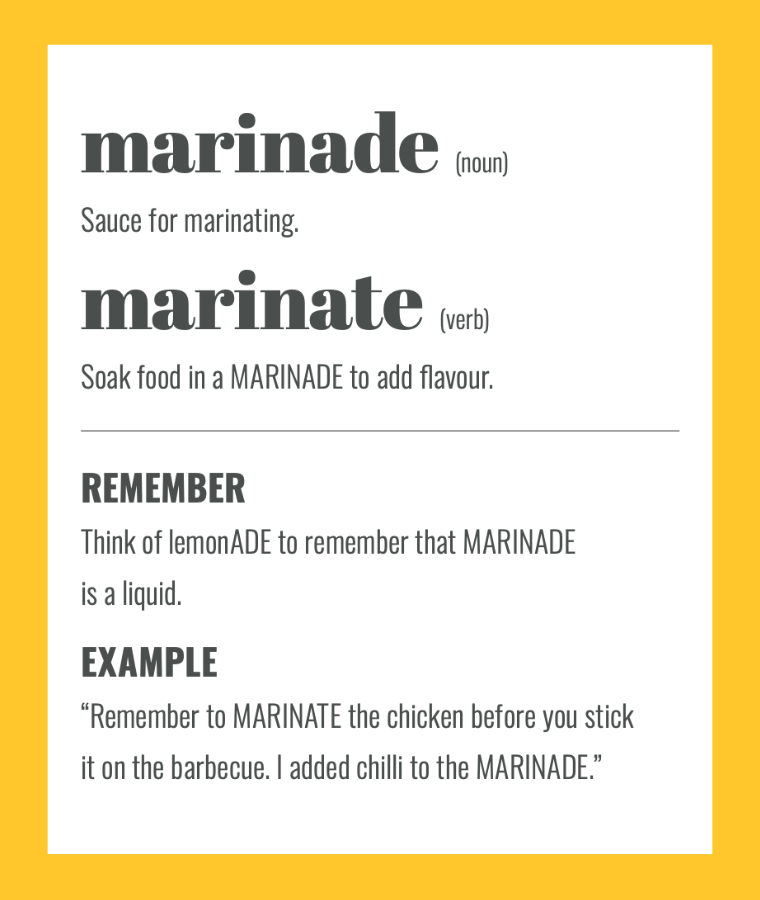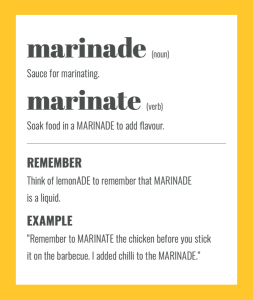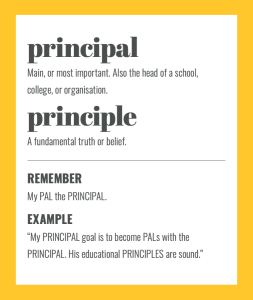Marinate vs marinade: simple tips to help you remember

MARINATE vs MARINADE – simple tips to remember the difference
MARINATE and MARINADE are easy to confuse. They may sound similar but they have different meanings. These simple tips will help you decide which word you need.
Marinate
MARINATE is a verb, meaning to soak food in a MARINADE to give it flavour and richness.
“Remember to marinate the chicken before you stick it on the barbecue!”
Marinade
MARINADE is a noun. It’s the sauce or liquid in which a dish is MARINATED, to provide flavour.
“Have you added chillis to the marinade?”
If you find it tricky to remember the difference, think of lemonADE to remember that marinADE is a liquid.
I hope this helps you to remember the difference between MARINATE and MARINADE.
Want more writing tips?
For more language love, join my Clever Copy Club and get monthly updates direct to your inbox. Alternatively, email me, follow me on Twitter, connect on LinkedIn or like my page on Facebook.
Get more tips in The Little Book of Confusables
Principal vs principle: do you know the difference?

PRINCIPAL or PRINCIPLE: which is which? Simple spelling tips to help you remember the difference.
PRINCIPAL or PRINCIPLE – two words with very different meanings. What do they mean – and how do you decide which spelling you need? It’s easy.
These spelling tips will help you decide whether you need to write PRINCIPAL or PRINCIPLE.
Principal
PRINCIPAL is a noun, meaning the head of a school or college, or the most important person within an organisation.
The easiest way to learn this is to remember that PAL is a noun: your PAL the princiPAL.
For example:
“Ms George is the college principal.”
Spelled this way, PRINCIPAL is also an adjective, meaning the chief or most important.
“Increasing turnover is our principal goal.”
Remember the A in principAl and the A in mAin.
Principle
PRINCIPLE is also a noun that describes a fundamental truth or belief.
For example:
“These are the principles of good grammar.”
OR
“I don’t agree with his principles.”
I hope this helps you to remember the difference between PRINCIPAL and PRINCIPLE.
Want more writing tips?
For more language love, join my Clever Copy Club and get monthly updates direct to your inbox. Alternatively, email me, follow me on Twitter, connect on LinkedIn or like my page on Facebook.



